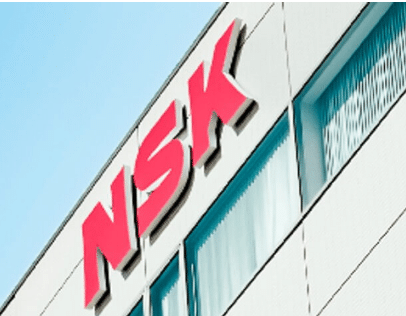
Introduction:
The steel industry is the backbone of modern infrastructure, producing the materials needed for construction, manufacturing, and various industrial applications. Bearings are crucial components in steel manufacturing equipment, ensuring precision and durability in the most demanding of environments. NSK and SKF, two leading bearing manufacturers, have established themselves as key players in the steel industry. In this comprehensive comparison, we will delve into NSK bearings and SKF bearings for steel industry applications, emphasizing their unique features, performance, and significance in this vital sector.
Challenges in Steel Industry Applications:
The steel industry presents unique challenges, including:
High Temperatures: Steel manufacturing involves extreme heat, which demands bearings capable of withstanding elevated temperatures.
Heavy Loads: Steel production machinery handles enormous loads, requiring bearings with high load-bearing capacity.
Corrosion Resistance: Bearings must be resistant to corrosion due to exposure to hot, humid, and chemically aggressive conditions.
Precision and Reliability: Precision is paramount in steel manufacturing to ensure product quality, and reliability is essential to prevent costly downtime.
NSK Bearings for Steel Industry Applications:
NSK is renowned for delivering high-performance bearings suitable for steel industry applications. Key features and advantages include:
Advanced Material Technology: NSK employs advanced materials and coatings to enhance bearing durability, making them highly resistant to wear, corrosion, and contamination.
Precision Engineering: NSK’s precision engineering processes result in bearings with minimal dimensional variations and tight tolerances, critical for maintaining the precision and accuracy of steel production machinery.
High-Temperature Performance: NSK offers bearings specifically designed to withstand elevated temperatures, a critical feature for the steel industry.
High Load Capacity: NSK bearings are designed to handle heavy loads, ensuring stability and safety in steel manufacturing equipment.
Longevity: NSK bearings are engineered for reliability and durability, reducing downtime and maintenance costs in steel plants.
Customization: NSK provides customization options to tailor bearings for specific steel industry applications, ensuring optimal performance.
SKF Bearings for Steel Industry Applications:
SKF is also a prominent player in the steel industry, offering bearings designed for optimal performance in steel applications. Key features and advantages include:
Advanced Materials: SKF utilizes high-quality materials and coatings to enhance bearing durability, wear resistance, and corrosion resistance, crucial for steel industry applications.
Precision Engineering: SKF’s precision engineering processes result in bearings with minimal dimensional variations and tight tolerances, ensuring reliable and accurate steel production.
High-Temperature Performance: SKF offers bearings capable of withstanding elevated temperatures, ensuring stable operation in steel manufacturing processes.
High Load Capacity: SKF bearings are engineered to handle heavy loads, providing stability and safety in steel production machinery.
Longevity: SKF bearings are designed for reliability and durability, reducing maintenance costs and downtime in steel plants.
Customization: SKF provides customization options to ensure that bearings meet the specific requirements of different steel industry applications, delivering optimal performance.
Conclusion:
In the steel industry, where high temperatures, heavy loads, corrosion resistance, precision, and reliability are paramount, both NSK and SKF have established themselves as trusted providers of high-performance bearings.
The choice between NSK and SKF bearings for steel industry applications should consider specific requirements such as high-temperature performance, load capacity, corrosion resistance, precision, longevity, and customization needs. By carefully evaluating these factors, steel industry professionals can make informed decisions that enhance the efficiency, reliability, and cost-effectiveness of steel manufacturing processes, contributing to the success of this vital sector.
